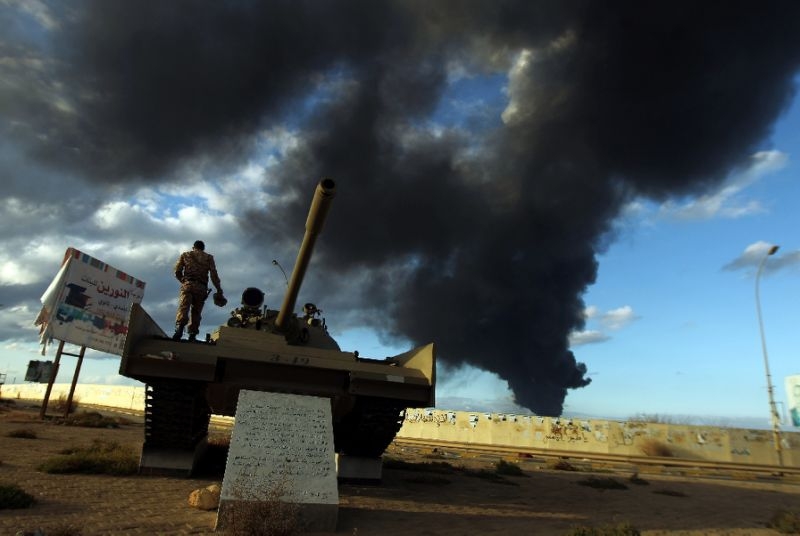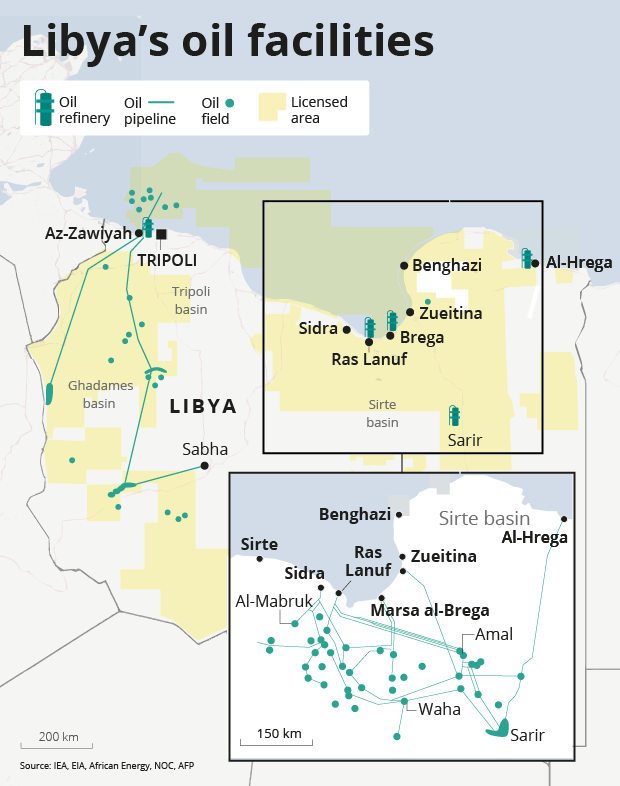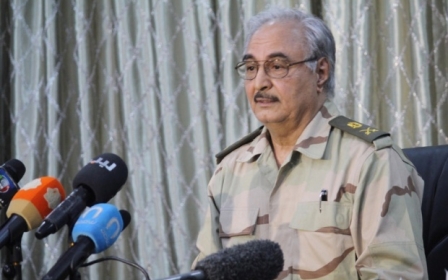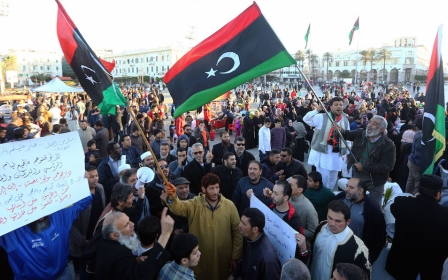Libya's oil: Troops loyal to Haftar seize control of all facilities

Forces loyal to Libyan military strongman Khalifa Haftar on Wednesday overran the entirety of the country's oil-producing region, after a series of air, sea and ground attacks, Al Jazeera reported.
A military source from the forces that had been in charge of Libya's oil facilities told Al Jazeera's correspondent that the forces had withdrawn under the pressure of repeated attacks on Wednesday.
The source, who requested anonymity, also said the air strikes had been launched by foreign planes "like the plane that launched strikes on the Shura Council of Benghazi Revolutionaries".
The group, a military coalition that includes Islamist groups Ansar al-Sharia and Libya Shield, has been involved in armed clashes with forces loyal to Haftar in the western Qanfouda district of Benghazi over recent days, and says it has been targeted with air strikes.
Libya's oil facilities, which are of fundamental importance to the struggling Libyan economy, had been under the control of forces loyal to the UN-backed Government of National Accord (GNA).
Reports of the complete takeover by forces commanded by Haftar - who supports a rival government in the far east of Libya that has refused to cede power to the GNA - come after his troops on Tuesday made a lightning advance, seizing control of two oil terminals.
Meanwhile, Libya's eastern parliament said on Wednesday it was cancelling an agreement to unify the country's National Oil Corporation (NOC).The statement from the parliament's energy committee urged the eastern-based Libyan National Army (LNA) to hand over the ports of Es Sider and Ras Lanuf as soon as it had fully secured them, without saying who they should be handed to.
When the LNA originally took over Es Sider, Ras Lanuf and two other terminals in Libya's Oil Crescent in September, it handed them to the NOC in Tripoli.
A breakaway NOC office aligned with Libya's eastern government and the LNA is based in Benghazi, though its efforts to manage oil operations independently have been blocked by international sanctions that remain in place.
The UN-backed GNA has struggled to assert control since it was installed in the capital Tripoli a year ago.
New MEE newsletter: Jerusalem Dispatch
Sign up to get the latest insights and analysis on Israel-Palestine, alongside Turkey Unpacked and other MEE newsletters
Middle East Eye delivers independent and unrivalled coverage and analysis of the Middle East, North Africa and beyond. To learn more about republishing this content and the associated fees, please fill out this form. More about MEE can be found here.





